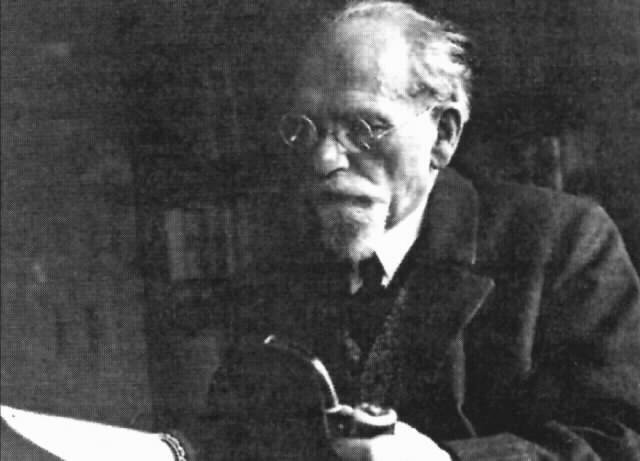|
|
|
Contents |
|
Lectures need to be used carefully. There are books, too many books. These offer a wonderful choice, and they are more easily pored over and studied.
But lectures do provide the human touch. You are in touch with someone who has more experience in the field, can hold your hand a little perhaps, and someone who finds the subject extremely interesting.
The lectures are copied to the web, where I try and add some eye-candy, links, quizes etc.
| A new Reader has just appeared - David Chalmer's Philosophy of Mind, New York, 2002, Oxford and I plan to use this in the future - the spread and level of papers and excerpts are better calculated for an undergraduate readership. There is an associated website, which promises to be extremely useful in its own right as well as a comprehensive portal to relevant resources on the web (I say 'promises' because it all depends on it's being kept up-to-date.) |
So I shall try and avoid abusing the precious time we have together. I don't want to speak material you would be better off reading from a book or handout. On the other hand, you need a body of material you can regard as the basic substance of the course - the sort of thing that you would get if you took excellent notes from a dictated textbook ... I do this by appointing a Reader. The Reader is Lycan's Mind and Cognition. It is a set of papers, and there is a linking commentary. It's a big book, lots of papers, and you shouldn't expect necessarily to read all of them. I have specified a subset which implies a paper a week for the term. I think I should probably regard this as the minimum. I list them on the sheet. The other papers are there to build on the minimum, and I would expect most of you to have time for a bit of building, especially in connection with your essay work. Choosing what to read is easier if you develop a sense early on of which topics you will want to prepare for the exam.
But the subset of papers is the bedrock. I should like you to regard that as the basic material of the course, rather than any set of lecture notes. I shall try and use the lectures to help you towards a real grasp of the papers, and not the other way round.
Some of the papers I would not have chosen - or at least there are some papers which I would like to include in the bedrock but which aren't in Lycan. Your finances being what they are, and numbers being as large as they are in relation to library holdings, I shall stick with Lycan and forgo any self-indulgence. A number of useful things are in the Part I Reader though. I shall assume you've still got that.
Span of attention: 20 minutes: keep me to it.
I shall suggest a short break after each 20 minutes or so. Sometimes it will be appropriate for me just to stop for a couple of minutes. You can catch up, reflect.
But I hope we could organise some discussion. The place for discussion is the seminars, but it is very helpful if we can arrange it for brief discussion to take place after each major point I make. That way you get to really understand the issue I'm trying to explain at the important point - ie before I try and explain the next!
The decisive historical moment, which set the Agenda for Modern thought, was the construction by Descartes, Locke and others in the 17th Century of the mind.
 |
| Descartes |
I can't go into what went before, but some of you will be a bit familiar with it. But what was introduced by these thinkers was a picture of the human being and their relation to their circumstances that is still with us.
Prepare not to be surprised therefore.
The essence of the human being is that they are a centre of consciousness.
A person on the Cartesian model cannot be in contact with the world outside themselves directly.
Mental items - ideas, images etc - are essentially copies of, or stand-ins for, things in the external world. (They are representations.)
We still think in this way. Objects in the world reflect light rays which fall on the eye and one way or another an image of the thing is generated in the mind. The image is a sort of mental copy of the the thing itself.
Thus Descartes' picture of the human being puts a gap between the person and the physical world they inhabit.
The question which dominates the agenda of philosophy after Descartes is: How can this gap be reliably crossed?
If we have an image, a mental thing, how can we tell whether it is an accurate picture of what it purports to be an image of?
I am not at this stage saying that this question cannot be answered. I am saying they arise, and cannot be answered easily; and that it set the agenda of much of philosophy in Europe since Descartes brought in this extraordinarily influential model. The picture of the human being as a consciousness looking upon the stage of the mind, where mental stand-ins for real objects strut their stuff.
How has this agenda been addressed? What are the different responses to it? Let me just pick out a handful, quickly:
Our only way of bulding knowledge of the external world is by relying completely on our 'experiences' - the images, ideas that end up before our minds. These are our only source of knowledge of the external world. But basing ourselves on these we can build up knowledge of the external world.
We can know nothing about any 'external world'. Any conception we may have of an 'external world' must be constructed by us out of what we do know - our sense experiences: phenomenalism.
We have a supplementary source of knowledge of the external world: that is to say, we are born with some principles or information.
We have a supplementary source of knowledge of a kind: that is to say, we have a framework of concepts through which we experience the world and we can know about that.
Which do you favour?
'Philosophy of Mind' is sometimes taken to be addressing the question: what is the nature of the mind, and what is its relation to other things such as bodies and the world?
But that is the question that only arises once the Cartesian conception of the mind has been accepted: and of course in philosophy we try very hard to challenge assumptions. So I hope that within the philosophy of mind we also bear in mind that Descartes may have been wrong, and that what is really at issue is what we are to make of human beings. It may be that it is a mistake to begin by thinking, well, there's a mind and there's a body, what can we say about the relation between the two?
That basic analysis may be the very thing that is unjustified.
Let me say a word about two important landmarks in the terrain we will be exploring.
 |
| Husserl |
Phenomenology attempts to reject the Cartesian split, attempts to displace the Cartesian picture. Phenomenology, launched by Husserl at the end of the 19th Century and continuing through Merleau-Ponty and Heidegger to the present day, when it is fashionable and vigorous.
Gilbert Ryle translated the phenomenological alternative to the Cartesian mind into the very different idiom of Anglo-Saxon Philosophy, through his masterpiece The Concept of Mind (1949).
Ryle was the closest you get to a philosophical behaviourist.
Let me just remind you of behaviourism.
 |
| Ryle |
Let me define a position I am going to call logical behaviourism first.
Consider the fact that in our ordinary talk we are perfectly prepared to speak of other people as thinking this and that, as 'feeling' discomfort or pleasure, as 'suffereing' from jealousy, as 'planning' to do such and such. We are quite prepared to apply to others 'mental' words (or 'mental predicates').
On the other hand, when one thinks about it, our only way of knowing whether we applying these words correctly is the observable behaviour of the person concerned.
Therefore, if those mental predicates really referred to things going on 'behind the scenes', in the mind of the person and hidden from everybody's view but the person concerned, we can never know whether we were justified in applying them to other people or not. And therefore there would be no sense in applying these words at all.
The logical behaviorist's conclusion is that mental words do not in fact refer to mental occurrences behind the scenes. They refer to aspects of a person's behaviour.
When we say that a person is angry, according to this view, we are not describing an internal mental experience; we are saying how a person is behaving or is likely to behave. (We are saying that he is liable to shout, and shout unreasonably harsh things, try to injure whatever has angered him, reject requests he might otherwise have met, and so on.)
Having outlines this doctrine, I have to say that t is very difficult to find anyone actually defending it!
Ryle comes nearest, but in The Concept of Mind he refers to 'neat sensation words' in such a way as to suggest that even he does not embrace the doctrine wholeheartedly.
Logical behaviourism, in its pure form, holds that in talking of a person's mind, and generally in applying mental words to a person, we are simply talking about his or her behaviour. To study a human being's behaviour is to study their mind.
Logical behaviourism is a conception that we could understand being very attractive to a scientifically-minded person who wished to study human beings. On a Cartesian view a good deal of what is important to the human being is rather mysterious and very difficult of access. Logical behaviourism, on the other hand, implies that, although the human being may be complicated, s/he is altogether observable. In studying what s/he does we are studying all there is to him or her.
The weakness of the position seems to be that it doesn't do justice to conscious experience. Having a pain is surely more than having a tendency to go in for a certain kind of behaviour.
In psychological behaviourism, a way is found of adopting what is attractive in the logical version without denying the reality of consciousness.
It doesn't deny the reality of consciousness - just insists that it must be neglected.
Behaviourism (generically, as it were) was launched in psychology through the work of Watson and Skinner in the 1930s; quickly enjoyed a tremendous vogue in psychology and spread to analytical philosophy through Gilbert Ryle's Concept of Mind (1949), and through the posthumously publsihed work of Wittgenstein, Philosophical Investigations (1952).
Behaviorism was displaced, dramatically, by cognitive science, which is essentially the application of the computer or information processing model. It is this conception of the human being that we are testing throughout the module.
END
Revised 31:03:03